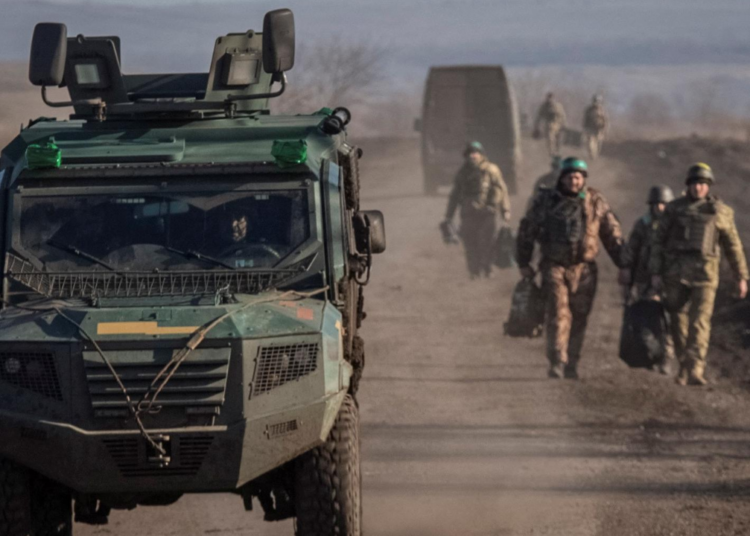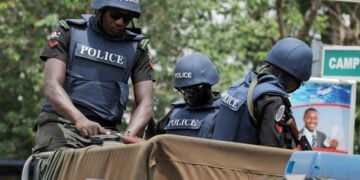Russia’s invasion of Ukraine last year has continued to present a dicey situation for international relations experts. At the onset of the war which Russia described as a special military operation, not many gave Ukraine any chance of lasting this distance. As it drags, interests uncommon in modern history have coalesced along ideological lines.
For most African countries, the war and its execution seem to be far removed from their immediate concerns. The continent, beyond its participation in the discussion at the United Nations (UN) level, appear to be playing minor roles in the crisis.
For instance, last year, about 30 African countries voted in favour of a United Nations General Assembly Resolutions that denounced the Russian invasion and supported the territorial integrity of Ukraine. Just as about 15 countries abstained for various reasons.
The geo-political maneuvering has taken the Russian Foreign minister Segei Lavrov to different parts of Africa to lobby support for his country in a war which Russia embarked upon, ill-advisedly, to stop Ukraine from joining the North Atlantic Treaty Organisation (NATO). It had argued that such a move was a threat to its national security.
Some countries in Africa such as Eritrea and Mali found alliance with Russia and voted against Ukraine in subsequent resolutions to protect their strategic interests. Mali, for instance, has since engaged the Russian-backed Wagner militant group to assist her in the fight against terrorism after it expelled the French Forces.
It is also understandable that South Africa may have sympathy for Russia following the historic support it got from her during the dark days of Apartheid.
Although Africa does not have a real dog in the fight, it is suffering from food shortage occasioned by the war and the concomitant disruption in the global food chain, especially as the continent struggles with the effects of the COVID-19 recovery and the challenges of climate change.
This war, like others of its kind, has caused deaths and destruction. It is from this standpoint that we are persuaded to argue that Africa Union, as a body, should play more significant role to end it by forming a united front for all the countries irrespective of varied interests. The AU, in our opinion, ought to see the urgent need to make it clear to both parties in the conflict that prolonging it may spell doom for the continent especially as the US-led NATO allies of Ukraine continue to arm Ukraine. Some of those weapons could find their way to the continent through groups like Wagner.
Africa Union must help to stop its members from taking sides and rather adopt the “None Aligned” approach of the 1970s and 80s. We are worried that a continuation of this war may provoke nuclear conflict especially if Russia is pushed further by the NATO allies who have strengthened the military capacity of Ukraine.
Russia has the largest stockpiles of nuclear warheads in the world and has the capacity to deploy it with deadly consequences for humanity. Russia has strongly sent signal to the global community that should she go down, the entire mankind will go down as well.
For the records, Russia possesses the most confirmed nuclear weapons, with 5,997 nuclear warheads followed by US with 5,428 nuclear warheads. One expert once said that “Russian nuclear doctrine, as other States, is that when the State is militarily threatened, it could resort to self-immolation by using nuclear weapons with its consequence of drawing to a close, the curtain of humanity, including Africa. And the interpretation of existential threat to the State is exclusively within the domain of the State concerned.”
African Union should send strong signal to the U.S. and its NATO military allies, to find a way for an immediate cessation of hostility while also putting pressure on Russia to halt the conflict with Ukraine to save the world, including Africa. The Africa Union should propose a series of measures to stop the flow of weapons into Ukraine and a common ground to meditate for peace to return to the region.
But the crux of the matter, in our view, is that most African countries may not be able to take the necessary sure-footed steps required to mediate in a complex diplomatic and military situation that presents itself in the Russia-Ukraine war. Most of these African countries are grossly indebted to the NATO countries even as others literally survive on the aids they receive from these rich nations. Even worse is that some of those countries with a long history of colonial relationship with Africa, have continued to weigh in on the continent’s affairs years after.
Regardless, in our considered opinion, AU can still exert some pressure in a way that can bring the parties to the negotiation table.





